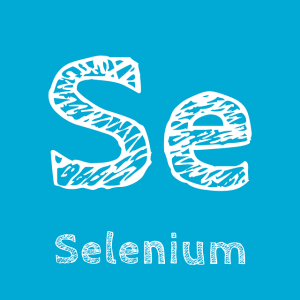In humans, Selenoprotein P is the selenium-dependent compound that serves as the primary selenium transport protein in the blood circulation. Selenoprotein P, abbreviated SELENOP, is synthesized in the liver. From the liver, then, it carries selenium out to the peripheral cells and tissues. In this way, it is responsible for ensuring selenium homeostasis throughout the body [Schomburg 2022].

In addition, SELENOP plays a role in the antioxidant defense of the organism. It acts as a scavenger of harmful free radicals. It also supports the activity of the glutathione peroxidases and the thioredoxin reductases. These selenium-dependent enzymes have a major role in the antioxidant protection of the cells. Given its antioxidant effects, SELENOP helps to modulate immune system responses [Schomburg 2022].

